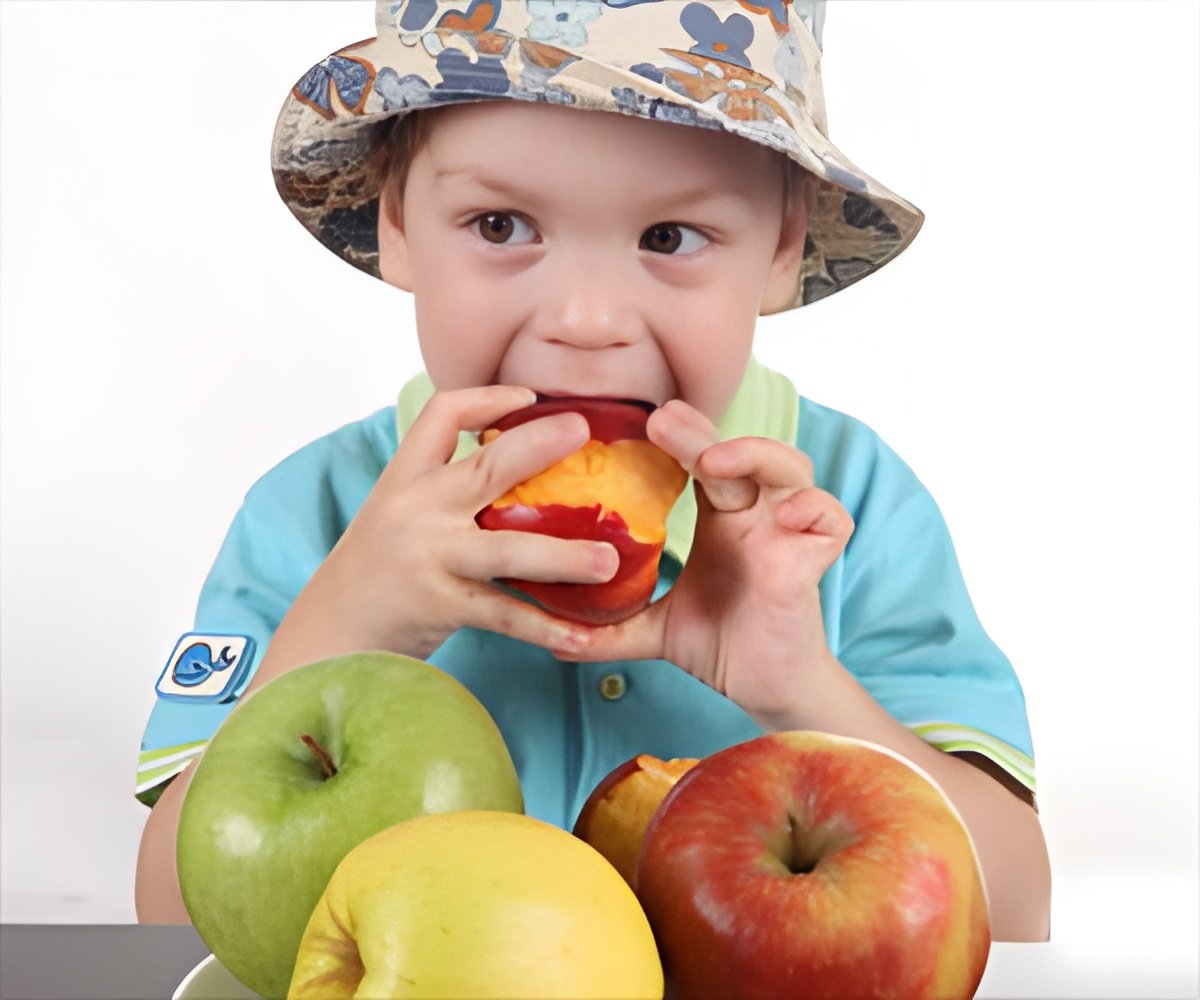Healthy eating habits in children related to the frequency of fruit, vegetables, fat and sugar intake is associated with self esteem.

‘Limiting intake of refined sugars, reducing fat intake and eating fruit and vegetables was found in children who had fewer emotional problems. Also, children with better self esteem eat better.’





Dr Louise Arvidsson, the corresponding author said: "We found that in young children aged two to nine years there is an association between adherence to healthy dietary guidelines and better psychological well-being, which includes fewer emotional problems, better relationships with other children and higher self-esteem, two years later. Our findings suggest that a healthy diet can improve well-being in children." Examining 7,675 children two to nine years of age from eight European countries - Belgium, Cyprus, Estonia, Germany, Hungary, Italy, Spain and Sweden - the researchers found that a higher Healthy Dietary Adherence Score (HDAS) at the beginning of the study period was associated with better self-esteem and fewer emotional and peer problems two years later.
The HDAS aims to capture adherence to healthy dietary guidelines, which include limiting intake of refined sugars, reducing fat intake and eating fruit and vegetables. A higher HDAS indicates better adherence to the guidelines - i.e. healthier eating. The guidelines are common to the eight countries included in this study.
The authors found that better self-esteem at the beginning of the study period was associated with a higher HDAS two years later and that the associations between HDAS and wellbeing were similar for children who had normal weight and children who were overweight.
Dr Arvidsson said: "It was somewhat surprising to find that the association between baseline diet and better well-being two years later was independent of children's socioeconomic position and their body weight."
Advertisement
At the beginning of the study period parents were asked to report how often per week their children consumed food from a list of 43 items. Depending on their consumption of these foods, children were then assigned an HDAS score.
Advertisement
The study is the first to analyze the individual components included in the HDAS and their associations with children's wellbeing. The authors found that fish intake according to guidelines (2-3 times per week) was associated with better self-esteem and no emotional and peer problems. Intake of whole meal products were associated with no peer problems.
The associations were found to go in both directions;
- Better wellbeing was associated with consumption of fruit and vegetables, sugar and fat in accordance with dietary guidelines
- Better self-esteem was associated with sugar intake according to guidelines
- Good parent relations were associated with fruit and vegetable consumption according to guidelines
- Fewer emotional problems were associated with fat intake according to guidelines
- Fewer peer problems were associated with consumption of fruit and vegetables according to guidelines.
Dr Arvidsson said: "The associations we identified here need to be confirmed in experimental studies including children with clinical diagnosis of depression, anxiety or other behavioral disorders rather than well-being as reported by parents."
Source-Eurekalert









